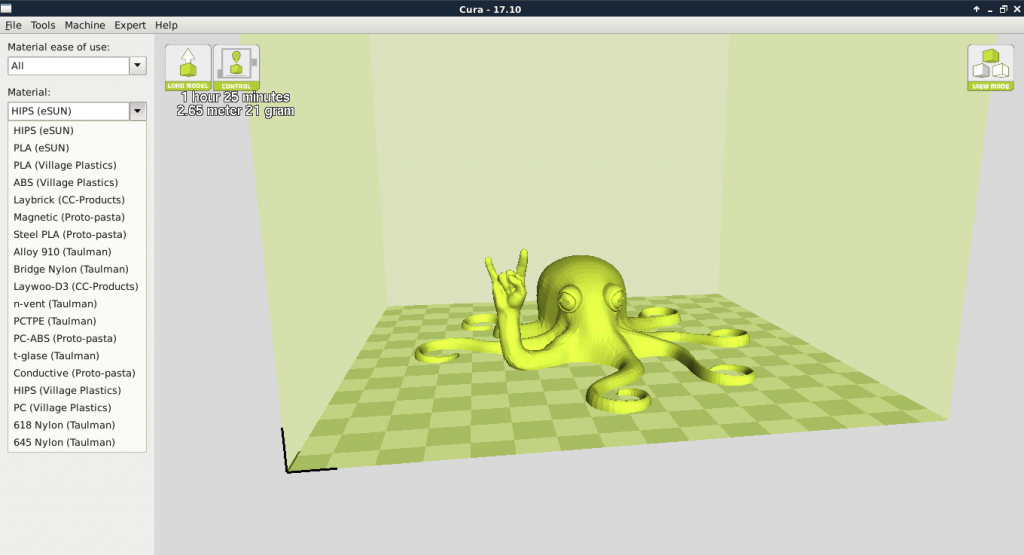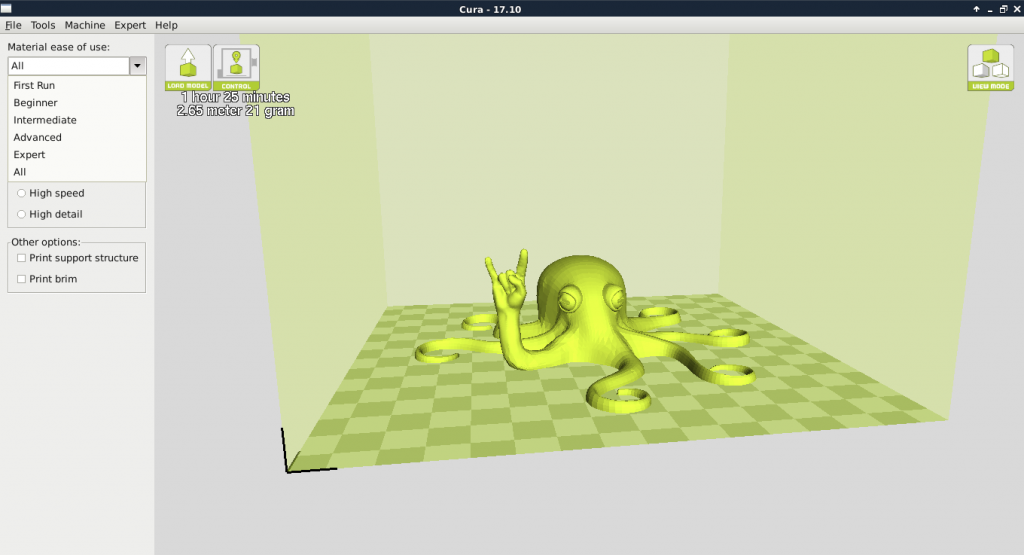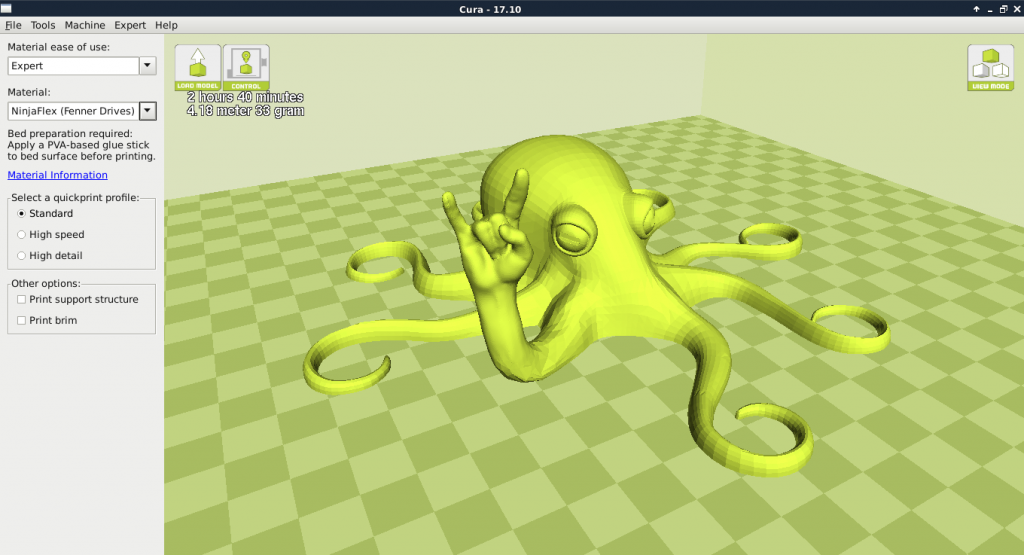Aleph Objects, in true open source fashion, has taken the popular open source Cura software and modified it for its own use, only to give it right back to the community to do the same. And, at World Maker Faire New York, the company has announced the latest upgrade to its LulzBot version of Cura, which they will be showing off at their booth in the 3D Printing Village. Like all LulzBot software, Cura LulzBot Edition v17 is free and open source.
The new software upgrade expands significantly on the previous version of Cura LulzBot, in terms of material profiles. While the old version was prepped for three different materials – HIPS, PLA, and ABS, profiles for every other filament had to be downloaded and manually installed. The updated quickprint now hosts twenty different material profiles right out of the box, categorized by ease-of-use from First Run to Beginner, Intermediate, Advanced, and Expert. The profiles include conditional cues for bed preparation, when necessary, and are accompanied by links to more info on the feedstock at LulzBot.com.
And these profiles aren’t limited to the actual material type, but the vendor, as well, because each the filament from each vendor may differ from a similar product offered by someone else. So, the quickprint profiles will include each LulzBot partner – eSUN, Taulman 3D, Proto-pasta, Fenner Drives, CC-Products, and Village Plastics – and each material: HIPS, PLA, ABS, nylon, elastomer, PET, electrically conductive, polycarbonate, wood-, metal-, and stone-like, and more. Harris Kenny, marketing manager at Aleph Objects, says of the update, “We are excited about the improvements our team made in this new version of Cura LulzBot Edition, and we look forward to hearing the community’s feedback as we collaborate together to make 3D printing easier for everyone.”
As new materials are determined to be compatible with LulzBot machines, the company will be able to create new profiles for these products. Aleph Objects is currently testing out a 100% recycled PET filament, B-PET, being developed by EnyeTech that will be compatible with the new version of Cura, once completed. EnyeTech’s Tobias Girelli says of the new material, “PET is a fantastic and versatile material, one of the most used types of plastic in the world. PET’s presence in the 3D printing industry is increasing because of its ease of use and strength, but sadly its not currently made from recycled plastic.” He adds, “Through research and development, we are improving the process of waste recycling for use in 3D printing. B-PET recycles PET waste into a fully functional 3D printing material. Aleph Objects is hopeful that this material will be available to the community soon.”
Aleph Objects has partnered with an increasing number of material developers, such as Eastman and taulman 3D, as well as auxiliary 3D printing product developers, such as bq. It’s no surprise, then, that the company would make it easier for its version of Cura to work with materials from these partners. Let’s hope that their open platform makes it easy for non-partner organizations to see their filaments become easily compatible with Cura LulzBot Edition, as well.





